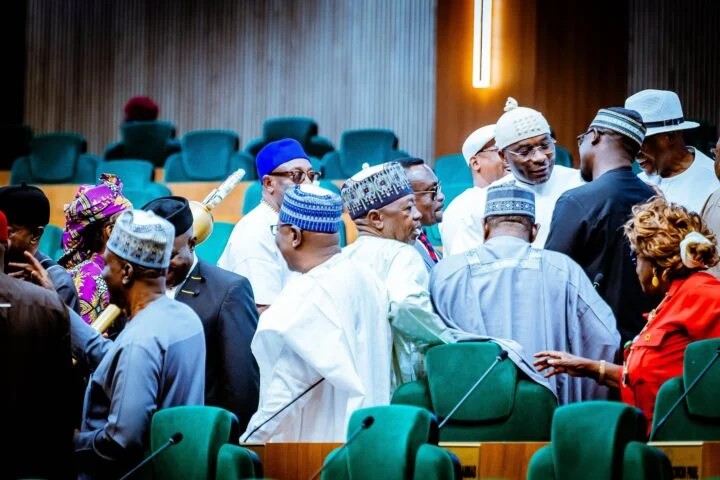The Nigerian political landscape witnessed a flurry of party defections in the House of Representatives, predominantly towards the ruling All Progressives Congress (APC), in the period leading up to the anticipated 2027 elections. This wave of realignments underscores the dynamic nature of Nigerian politics and the strategic calculations of politicians seeking advantageous platforms for their future ambitions. While some defections were attributed to internal party conflicts, others appeared motivated by the perceived strength and stability of the ruling party.
The defections began to gain momentum in late 2024 and continued into 2025. Early instances included Chris Nkwonta from Abia and Sulaiman Abubakar from Zamfara, both of whom abandoned the Peoples Democratic Party (PDP) for the APC. This trend of PDP members switching allegiance to the APC became a recurring theme throughout the period. Furthermore, the Labour Party (LP) also witnessed a haemorrhaging of its members, with several representatives opting to join the APC, citing leadership crises and internal disagreements as their primary motivations.
The months of February and March 2025 saw further defections to the APC, with lawmakers from Kaduna and Niger states explicitly mentioning the internal crises within the PDP as their reason for leaving. Interestingly, not all defections were directed towards the APC. In a less common move, Clara Nnabuife, representing Anambra state, switched from the Young Progressives Party (YPP) to the All Progressives Grand Alliance (APGA), citing marginalization within her former party. This highlights the complex interplay of local political dynamics and personal considerations influencing these decisions.
May 2025 proved to be a particularly active month for party-switching. A significant number of PDP members, including Victor Nwokolo from Delta, Julius Pondi from Burutu, Thomas Ereyitomi representing Warri, and Nicholas Mutu from Bomadi/Patani, all joined the APC. Simultaneously, there was a smaller counter-movement, with LP members Obetta Chidi and Dennis Agbo, both from Enugu State, defecting to the PDP. This two-way traffic indicates a more nuanced picture of political realignment, with individual circumstances and local factors likely playing a significant role.
The trend continued with a cluster of defections from Katsina State in early May. Three PDP members, Abdullahi Balarabe, Abubakar Albaba Aliyu, and Yusuf Majigiri, all cited internal strife and a lack of cohesion within their former party as the impetus for joining the APC. These defections, coming from a single state, suggest localized issues within the PDP structure in Katsina. It also reinforces the narrative of the APC as a more stable and potentially more advantageous political vehicle, at least in the perception of these lawmakers.
Towards the end of May, the stream of defections persisted. Two lawmakers from Kano, Kabiru Usman and Abdullahi Sani, left the New Nigeria Peoples Party (NNPP) for the APC. In addition, Oluwole Oke from Osun and Sunday Umeha from Enugu also abandoned the PDP in favour of the APC. Finally, Okolie Lawrence and Akingbaso Olanrewaju, from the LP and PDP respectively, added to the growing number of APC recruits. The sustained influx of members from various parties into the APC, even towards the latter part of this period, suggests an ongoing consolidation of power by the ruling party and raises questions about the future viability of the opposition in the lead-up to the 2027 elections. The reasons provided by the defecting lawmakers highlight recurring themes of internal conflict, leadership crises, and a perceived lack of stability within their former parties, all contributing to the APC’s apparent growing dominance.


